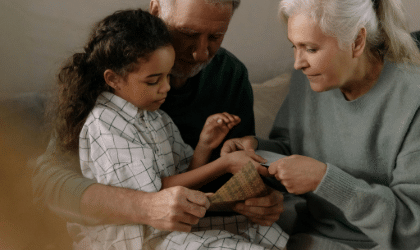As any medical professional would attest, not all injuries are the same. And when a patient has been badly injured, your first priority is doing what you can to get your patient on the road to recovery.
However, accessing medical rehabilitation, depending on the nature of the injury, might be out of grasp for some patients due to significant costs and financial limitations. Extended Health Insurance plans can only stretch so far, and many seriously injured patients don’t seek financial solutions simply because they don’t know that they are available.
In this situation, recommending that a client seek legal advice is imperative. Of course, in order to refer a patient for legal advice, it is important to first evaluate the cause of their injuries and whether they require extra financial assistance towards achieving medical recovery.
What to Listen For on The First Visit?
When a client is injured, their first point of interaction is usually with a medical professional. Whether you’re an RMT, a Family Doctor, a Chiropractor, or a Physiotherapist, you play an integral role in helping your patients learn about their injuries and understanding how it may affect their day-to-day life.
The first visit is critical. It allows a medical professional to do an in-depth assessment with a client in order to learn just how significant their injuries are. This first assessment allows a medical professional to delve into the incident, note how bad a patient’s limitations are, and determine whether the injuries may cause any further restrictions – both physically and mentally.
The relationship between medical professionals and their patients is important. Injuries are a serious matter, and can naturally be very distressing for a patient. They could have a number of issues to think about: how will they complete their everyday responsibilities? How soon will they be able to get back to their job? With so many pressing worries in mind, it’s important to understand how the incident caused their injuries, ask the right questions, and recognize when a patient may have been unjustly harmed. Oftentimes, they may not realize it themselves.
As a medical professional committed to the recovery and well-being of your patients, this first visit is an important point of interaction that sets the stage for their rehabilitation.
How Was Your Patient Injured?
The first thing a medical professional should consider is the way their patient sustained their injury.
Did they slip over a wet floor without warning at a local restaurant? That would qualify as a slip and fall. Were they assaulted walking down the street? Were they t-boned or rear-ended and seriously injured? That would point towards a tort claim. Perhaps they were harmed due to a defective cooking appliance; that would point towards negligence and potential product liability.
Understanding the way your patient was injured allows you to recognize whether or not they should seek further help. An injury caused by a defective product, for example, could impact their day-to-day life long-term. Therefore, it’s worthwhile to point them towards a legal professional who has the means to advocate on behalf of your patient for further medical coverage, accident benefits, or additional funds needed to cover potential wage losses and expenses.
Another key thing to listen for is verbal signs of distress when a patient is discussing financial coverage for their medical treatment. It’s important to ask the injured patient about financial funding; if a client is unable to afford the treatments they need, it could impede their willingness to complete a long-term treatment plan with you. Asking these questions can help medical professionals propose solutions, rather than having clients feel as though they are stuck paying out of pocket, or that they have to suffer long-term financial struggles in order to receive the treatment they need to properly recover.
Lastly, a medical professional should always listen for symptoms that may speak to hidden, less obvious injuries. Trauma is not only applicable to physical injuries. Psychological or emotional damage can also have a lasting impact on an individual, and believe it or not, patients can receive access to medical rehabilitation funding and potential compensation for these types of injuries. For example, a newfound driving phobia following a motor vehicle accident, would be detrimental for a taxi driver who regularly drives for work. The impact of being injured in a serious motor vehicle accident could have a significant effect on this worker’s ability to return to their job and normal life activities.
Overall, there are many situations that could benefit from the direction of a lawyer in order to better serve a patient and offer them the financial security they need.
The Importance of Natural Conversations
Here at Gosai Law we employ active listening and use natural conversation when discussing an incident with a client.
A good lawyer is patient, curious, and understanding. We delve into the details, taking the time to hear our clients out, ensuring that we fully understand the repercussions of the incident and our client’s consequent injuries.
Similarly, a medical professional can use natural conversation to determine the scope of a patient’s injuries. Treatment is a necessity for those with major injuries, but the way one is able (or unable) to afford these treatments is an equally important conversation.
Understanding nuance, and honing into minor details can make all the difference, which is why it’s good practice to actively listen, and utilize natural conversation to ensure a patient is comfortable enough to share the full extent of their experience during the accident.
What Do We Commonly See Causing Major Injuries?
Many believe that financial aid is only available to those who are injured in motor vehicle accidents, which is simply not the case. Although accidents involving motor vehicles are the only type of accidents that qualify for accident benefits, there are additional ways to receive financial compensation if your patient has been seriously injured through no fault of their own.
While motor vehicle accidents commonly result in major injuries, there are a variety of incidents that could involve negligence. For those who have been wrongfully harmed – and therefore sustained major injuries – a personal injury case is always an option. Major injuries can be caused by:
- Slip and falls;
- Medical malpractice;
- Workplace accidents;
- Motor vehicle accidents; and,
- Pedestrian/cyclist/motorcycle accidents.
If you suspect your patient was injured due to negligence, we encourage you to contact our office for an opinion. No matter the incident, pointing your patient towards legal advice could greatly benefit them.
Resources Your Patients Could Have Access to
Following an injury, many individuals turn towards their Extended Health Care Benefits. Though this may cover the bulk of various treatments, most major injuries will require additional funds to support a full recovery.
Beyond surgeries and treatments, medical rehabilitation can include therapy, Personal Support Workers, RMT’s, assisted devices, prosthetics, and more. Sometimes a combination of various therapies are needed. Inevitably, this adds up. As such, it’s important to steer your patients towards legal advice if you suspect they may need financial support. Depending on their claim, they could be entitled to:
- Accident benefits;
- Extended Healthcare benefits; and,
- OHIP covered resources.
When applicable, it’s important to guide your patients towards legal advice, as lawyers can present them with options that could make all the difference in affording the treatments they need.
Battling Frivolous Claims
Another key reason as to why an in-depth assessment during the initial visit is so crucial is that it allows RMT’s, Physiotherapists, and other medical professionals to distinguish between viable personal injury claims and frivolous claims.
A frivolous claim is one that has no merit whatsoever – there is little to no justification to fulfill the qualifications of a personal injury claim.
Taking the time to talk to your patients and actively listen to their experience will allow you to determine whether it’s worth it for them to speak with a law professional.
Educating Your Patients
Needless to say, the relationship between physiotherapists, RMT’s, other medical professionals, and their patients is crucial.
Understanding the ways a legal professional can help is a key component in helping your patients make informed decisions that allow them to get what they need to recover. Finances should never stand in the way of a patient’s recovery.
As many patients don’t know their options, it’s important that medical professionals make it common practice to recognize the opportunities for a patient to seek legal and financial aid.
What to Do Next?
Here at Gosai Law, we offer free consultations, designed for clients to learn more about the services we offer and how we can help.
If your patient has suffered an injury due to an accident, point them towards seeking legal advice. Depending on the severity of their injuries, they may need financial help in order to recover and return to their everyday life.











